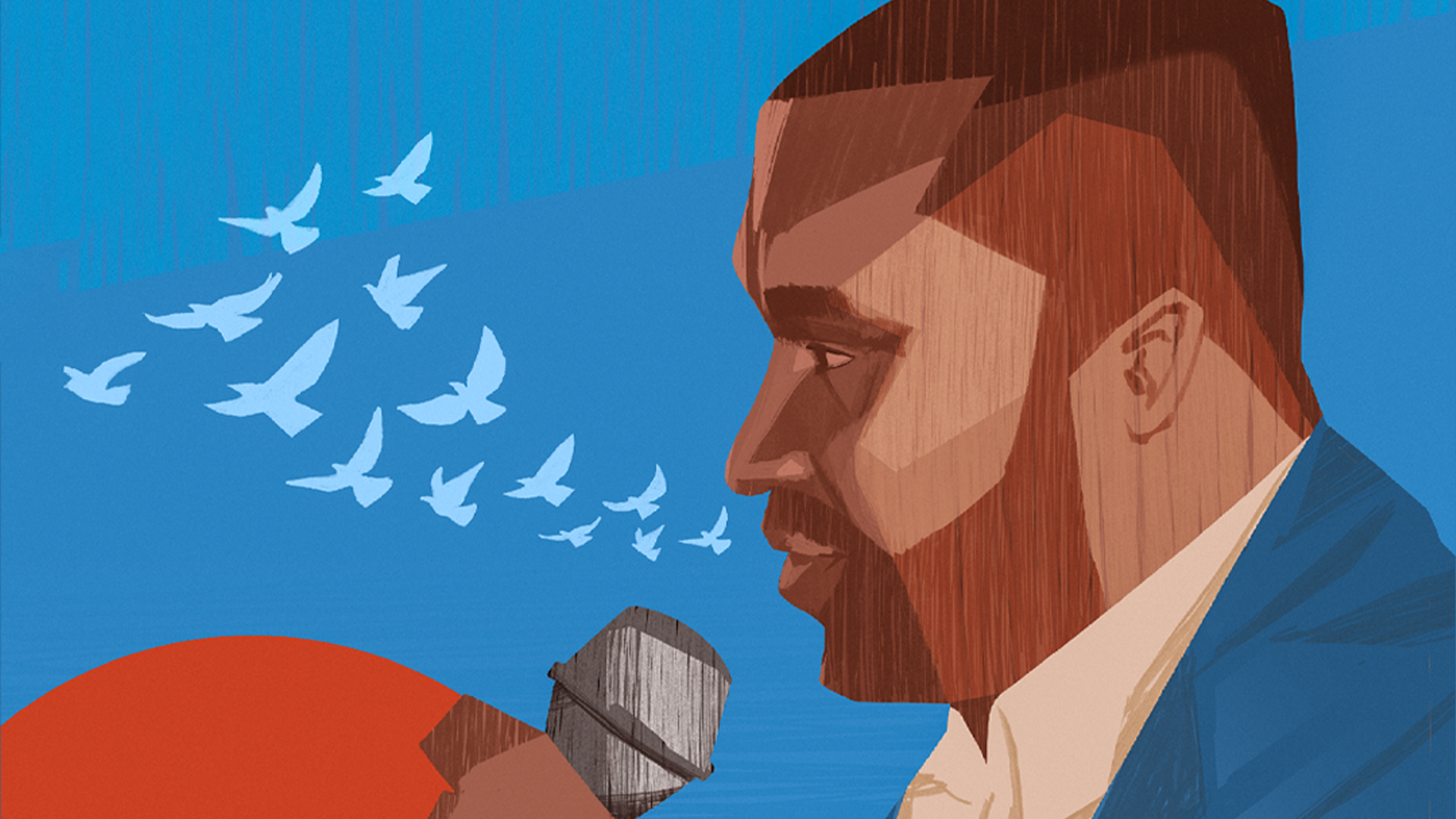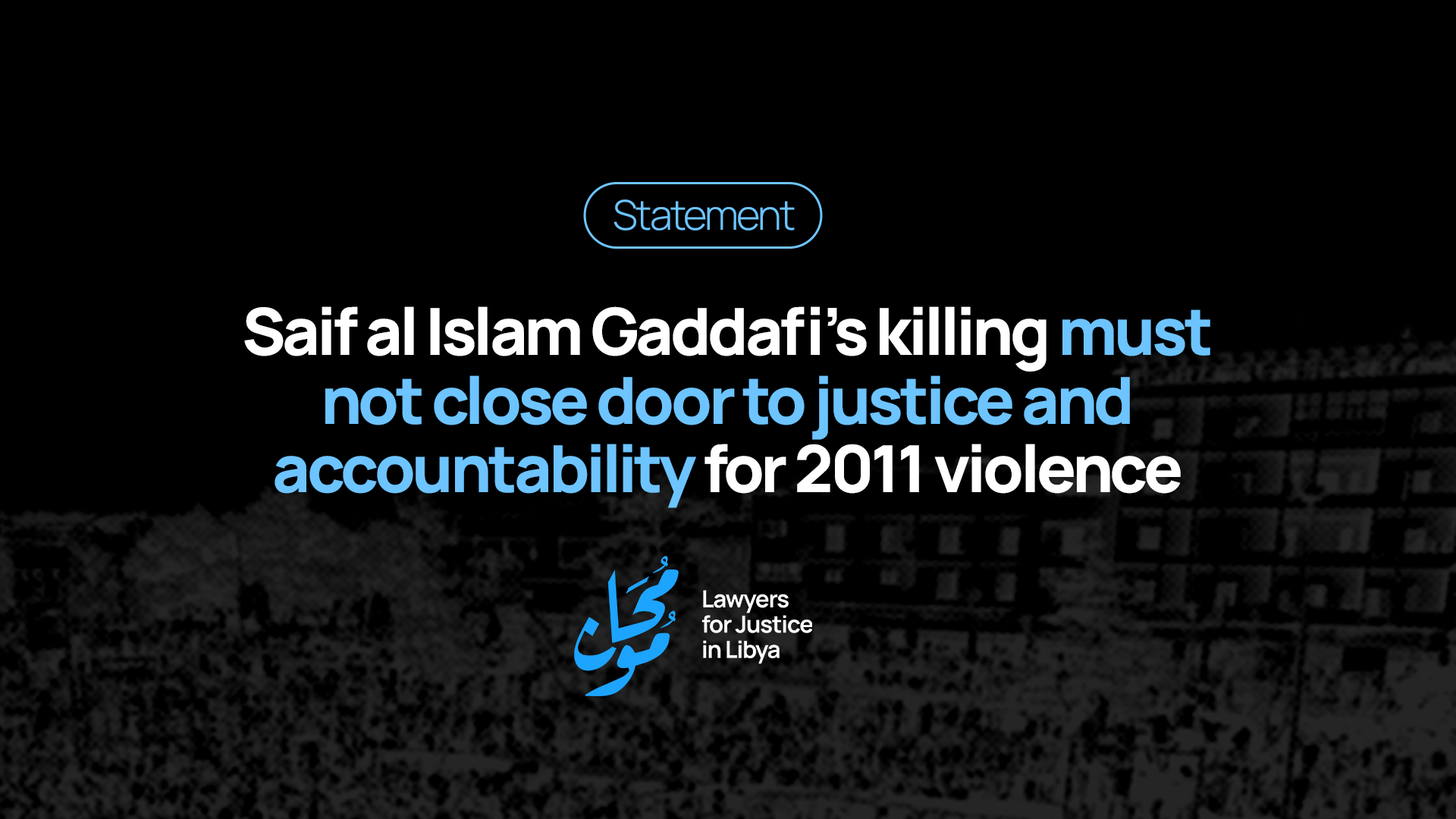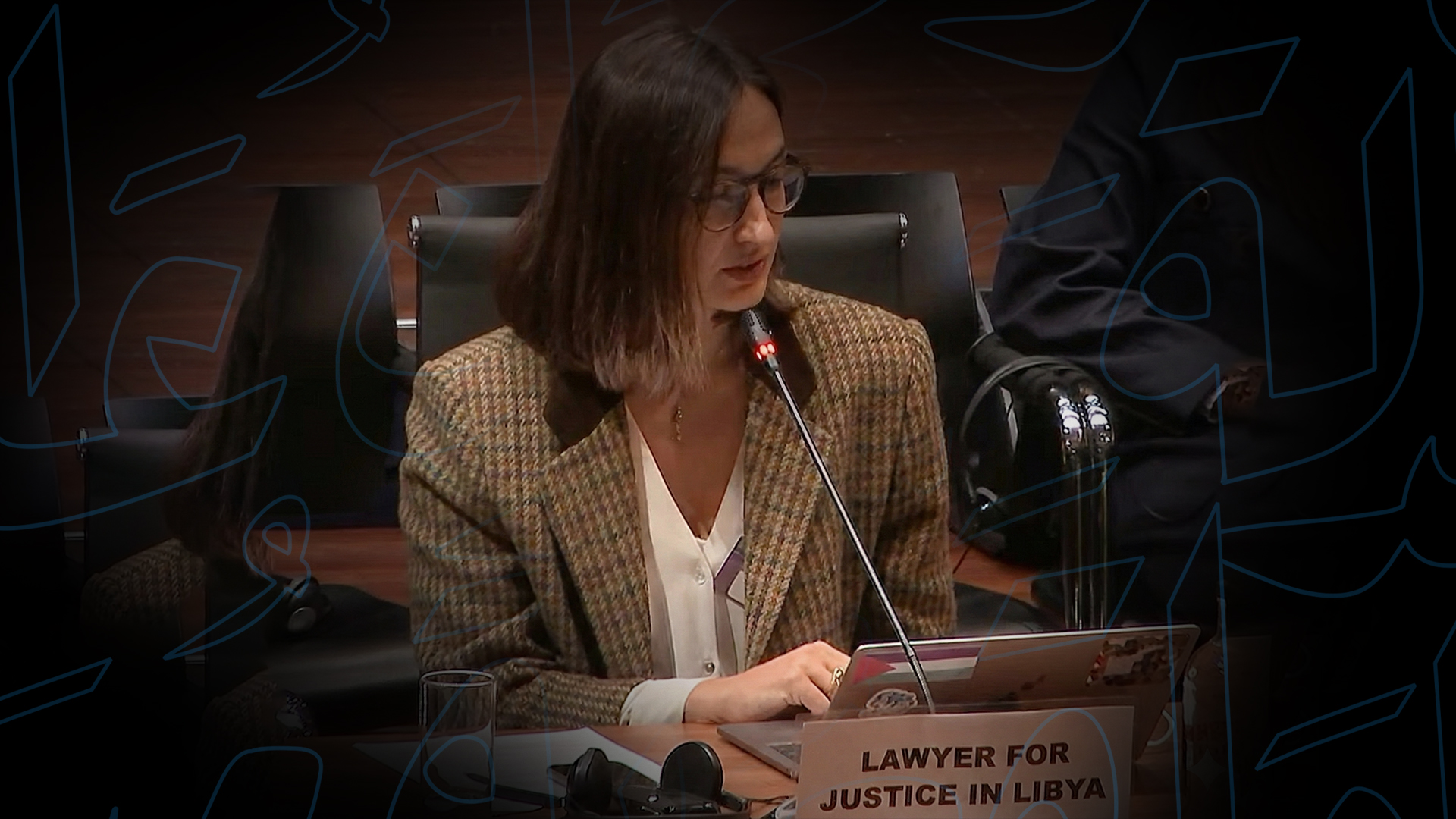Recent indiscriminate attacks on civilians and hospitals by Haftar’s forces may amount to war crimes
Since Field Marshal Khalifa Haftar declared that he would “take control” of Libya, his Libyan Arab Armed Forces (LAAF) has committed serious violations of international humanitarian law that may amount to war crimes, Lawyers for Justice in Libya (LFJL) said today, amidst the intensified attacks on the capital that have seen tens of civilians killed and hospitals attacked.
On 27 April 2020, Haftar stated that he has revoked the 2015 Libyan Political Agreement and declared that he would lead Libya through a transitional phase with a roadmap that protects the will and dignity of the Libyan people. However, since then, Haftar’s forces have intensified their military operations, leading to a spike in civilian deaths. They carried out indiscriminate attacks on densely populated neighbourhoods, hospitals and Mitiga airport killing and injuring civilians including health workers and children. The Government of National Accord (GNA) has also been responsible for breaches of international humanitarian law by placing military targets such as weapon depots in civilian populated areas, which could also amount to a war crime.
“These indiscriminate attacks using aerial and ground forces violate international humanitarian law and must cease immediately. Civilians and healthcare workers are not legitimate targets and it is appalling that Libyan people are losing their lives as a result of these assaults. The LAAF and other parties to the conflict must respect the right to life of the Libyan people and abide by their obligations under international law and the terms of the humanitarian truce,” said LFJL Director Elham Saudi “The targeting of hospitals and healthcare workers is illegal at any time, but in the current context where healthcare services are desperately trying to provide care during the Covid-19 outbreak, it has additional terrifying implications,’ added Saudi.
Indiscriminate attacks on civilians and civilian houses
Since 1 May 2020, aerial and ground attacks intensified in different neighbourhoods in Libya’s capital Tripoli. The United Nations Support Mission in Libya (UNSMIL) attributedmost of the attacks to the LAAF and estimated that between 1 and 8 May at least 15 civilians were killed bringing the civilian death toll since 4 April 2019 to 371. The spokesperson for the Libyan Ministry of Health of the Government of National Accord (GNA) estimated that 29 civilians, including women and children as young as five years old, were killed between 1 May and 17 May. The attacks during this period also injured at least 101 civilians, including women and children as young as five years old. Similarly, he attributed most of the attacks and civilian killings to the LAAF. The attacks carried out in Tripoli neighbourhoods included Abu Salim, Tajoura, Zawiat al-Dahmany, Zanata, Ein Zara, Bab ben Ghasheer, al-Hadhba, and Salah Eldeen.
The LAAF is implicated in an attack on 1 May in the Zanata neighbourhood in Tripoli, in which two men were killed and another three people were injured, including a woman and a child. LFJL spoke to one eyewitness from the neighbourhood who witnessed the killing of the two men. He said:
“It was a few hours before we were due to break our fast, a rocket fell on the neighbourhood where we live. The sound of the explosion was massive. Other residents from the neighbourhood and I went out to see what happened and to try to rescue any injured people. We did not stay out for long fearing another attack and so we headed back to our homes. On our way back home, another rocket fell and shrapnel hit two men and killed them immediately.”
In another incident on 6 May, heavy shelling took place in the neighbourhood of Abu Salim allegedly targeting a weapons depot belonging to the Abu Salim Brigade, which is affiliated with the GNA. Residents told LFJL that the explosions in the weapons depot were massive and that some of the rockets missed their target and fell on civilian vehicles and injured civilians. The residents said that they were terrified by these attacks. As the rockets were falling, the residents said they could hear the screaming of women and children. They did not know where to hide or to seek shelter from these attacks. They said that all they could do was to stay in their homes away from any windows and doors.
Following the attack, some residents went out to try to rescue any civilians who might have been injured. LFJL spoke to a family member of three men who were injured while trying to rescue others from this attack. She said:
“Three of my relatives, three brothers, were injured in this attack. They are in their 20s and 30s. Once we heard the explosions, the three brothers went out to try to rescue any injured civilians but the price for their good deed was that they were hit by shrapnel that left the first injured in his eyes and leg, the second injured in his back and the third injured in both legs. All three are now in critical condition.”
LFJL also spoke to another woman in her 50s who had her house destroyed in this attack. She said:
“The streets in this area are narrow and are always crowded with people. I was in the second floor of my house when the attacks started. The noise of the explosions was very loud. I was scared to go out. I decided to stay in my house and shelter myself inside. I disconnected the fridge from the electricity and hid behind it while I was screaming and saying my final prayers. I closed my eyes and put my head down. I was still hearing the shells hitting my house. After the explosions stopped, I moved from behind the fridge to see the damage. I found all the windows in my house broken, the house was damaged and the stairs leading to the first and ground floor were completely destroyed. My neighbours helped me to get down.”
Shelling of Mitiga airport and surrounding neighbourhoods
On 9 May, the LAAF is implicated in a number of attacks on Mitiga airport and launched more than 80 rockets that bombed the airport and surrounding civilian neighbourhoods. The attacks caused severe damage to the airport, including two civilian aircrafts, one of which was due to depart to repatriate Libyans stranded out of the country. Mitiga airport is a lifeline to thousands of Libyans and one of the only routes for the delivery of humanitarian assistance to the Libyan people abandoned in this armed conflict. The GNA also uses the airport for military purposes. Both parties to the conflict must protect civilians during conflict; the targeting of civilians and civilian objects is illegal, as is the failure to place military objects away from densely populated areas and civilian objects.
Several neighbourhoods close to Mitiga airport were also indiscriminately attacked, including the neighbourhood of Bab ben Ghasheer, where three civilians were killed. LFJL spoke to a cousin of one of the men killed. He said:
“My cousin was in his 20s. When the heavy shelling of our neighbourhood started, he went out to try to rescue as many civilians who were hit as possible. The scene was terrifying and my cousin was trying to rescue the people when he himself was hit by a shell and was killed immediately. He was trying to be a good Samaritan and, in return, he was killed himself. My mother could not absorb the news of her nephew’s death and had a heart attack on the same day and passed away”.
Another resident living close to Mitiga airport told LFJL that this shelling was unprecedented and that he could see heavy black smoke coming out of the airport. In response to a question on whether he had shelter to protect his family and himself, he said:
“We do not have anywhere to run like the many residents in our neighbourhoods. We are always afraid that shells may hit and kill us, which we have seen happen to other people. We try to stay away from the windows and doors to avoid being hit by the shrapnel; there is nothing else we can do to protect ourselves.”
Indiscriminate attacks on hospitals and medical centres
On 10 May, the spokesperson of the Ministry of Heath of the GNA said that the Abu Salim hospital was shelled. The shelling caused significant damage to the hospital that left it out of service . Further, on 14 May, Tripoli’s Central Hospital and the surrounding buildings were shelled, resulting in injuries to 14 people, including women and children. Due to the shelling, the hospital suffered damage to several units and buildings.
UNSMIL estimated that at least 63 attacks have been carried out against health facilities, ambulances and health workers since April 2019, resulting in 80 deaths and 61 injuries. Nine of these attacks occurred since January 2020 alone causing five deaths and 12 injuries.
“The unprecedented escalation of fighting and the resulting violations are not a coincidence; with the world distracted, the LAAF and others are trying to consolidate power," said Saudi. “It is time that the international community stop play lip service to ending the conflict in Libya and pursue those who violate the United Nations arms embargo and ceasefire, inside and outside the country, and hold them accountable,” added Saudi.





